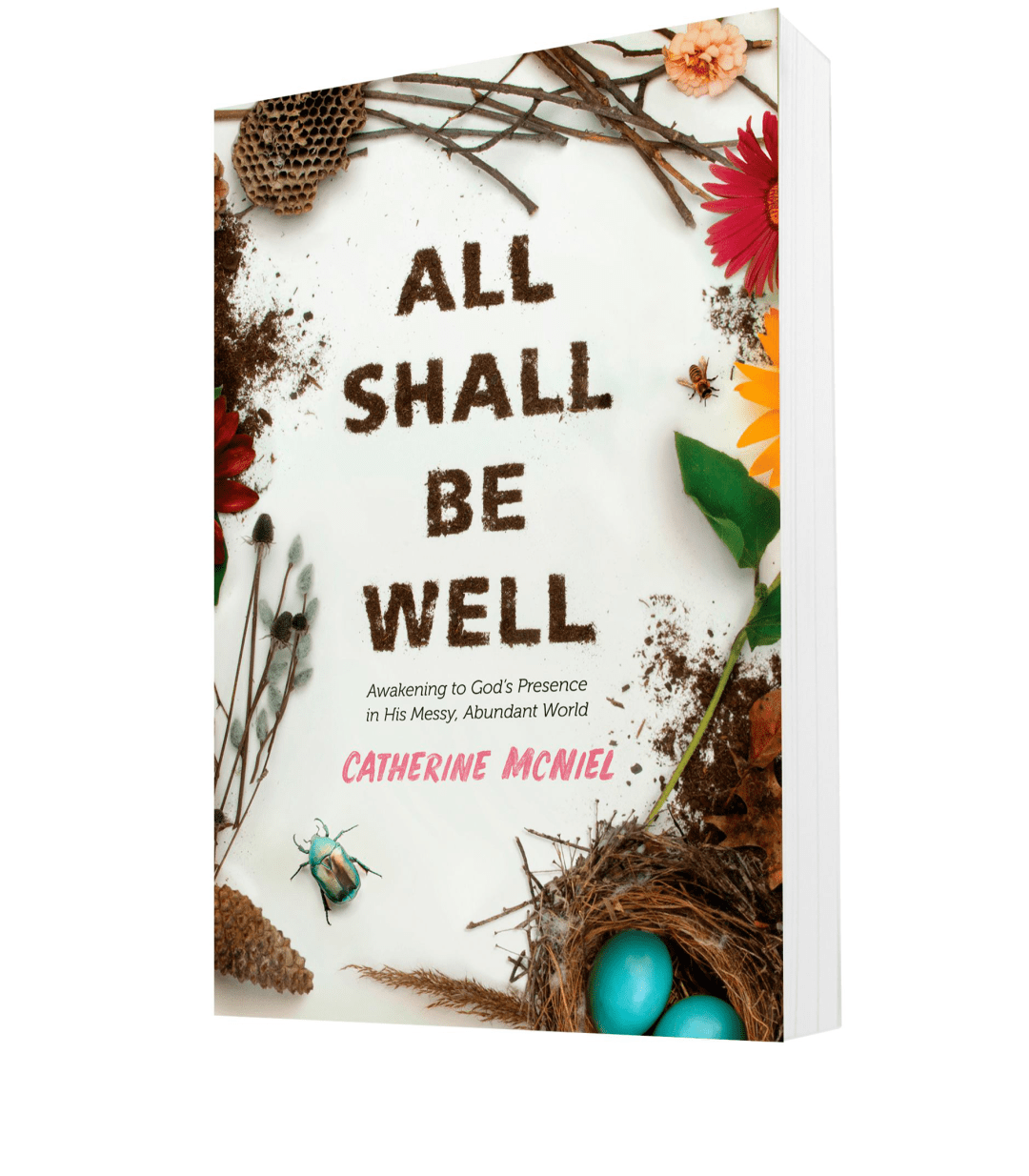In the Christian journey’s four seasons, “All Shall be Well”
For a year of my life, I lived in Northern California, where the seasons felt all out of order, the rhythm of nature a mess.
In the winter, everything was bright and green from the cool rains and in the summer the grasses were golden and dry. Yet, spring bloomed with newness and fall was vibrant with colored leaves. This wasn’t a mess, of course. It was natural for that part of the world, but it felt backward and messed up to me because of my midwestern roots. I spent my childhood in Iowa where all four seasons were distinct, and winter was snowy white or drab with gray and death. Spring bloomed, and summer was brighter with life and darker greens and growth. Fall was colorful, chilly and full of feasting on squashes and pumpkins.
My year in California helped me learn that the four-season motif of seasons as I knew it was not the experience of many, and probably most. Although my spirituality and faith had been informed by the arc of four-season multicolored life found in the heartland, it would be unfair for me to suggest that such a perspective ought to be shared (or even understood) by others. It would be a narrow view.
I hadn’t thought about all this in a while, but it came back to mind as I read All Shall Be Well: Awakening to God’s Presence in His Messy, Abundant World by Catherine McNiel.
I was curious about the book because “all shall be well” echoes a mystic I am fond of, Julian of Norwich. I thought the book might be good to review on Messy Jesus Business because of its subtitle — particularly the messy part. (It turned out that the book had nearly nothing to do with Julian of Norwich or her words, and the explorations of the messiness of Gospel living felt lacking.)
The contrast of the four seasons I knew in Iowa from how I experienced the seasons in California came to mind as I read All Shall Be Well because the book is structured around the flow of the seasons in the midwest. McNiel starts her explorations with a description of God as a gardener, with prose that reminds us of Genesis and God naming all creation good. From there, she takes us on a journey through the four seasons as I knew them in Iowa.
Along the way, McNiel pairs elements of the seasons with a call for the Christian journey (thawing with hope, heavens with wonder, harvest with gratitude, leaves with surrender, snow with rest), provides personal narrative about her family life, briefly introduces theological concepts (such as teleos, and kenosis) and offers invitation to pay attention to the wild and natural world of which we all are part. The tone of the book got me daydreaming about colorful bouquets of wildflowers upon hand-stitched doilies in sunny farmhouses. Bright. Pretty. Cheery. Said another way, much of what’s in All Shall Be Well is hearty like the heartland I know and love.
Aspects of the book didn’t satisfy my craving for deep contemplation about living out the messy Gospel, though. I may understand the Gospel more radically than McNiel. While some scenes groaned for expansion, other sections were unessential. (I could have done without the “life is hard” litany.) While complex theological concepts were introduced, they sometimes felt glossed over. I had similar struggles when I read about human concepts as well. McNiel writes, “Caring for people I consider enemies takes a great deal of effort, as does being generous with those I find undeserving, choosing my words carefully, moving outside my comfort zone, setting aside my privilege, giving sacrificially — to name just a few.” In one spot, much felt troublesome and I was frustrated I couldn’t enter into a dialogue with the author and unpack why she finds some are undeserving of care (I believe that no one is), and tell her that I don’t believe privilege can ever be set aside; it is our duty to share. Plus, the prose jostled me with vex because I am no longer used to exclusively masculine pronouns for God.
Yet, much of the book was beautiful and profound. McNiel’s description of her family experiencing the 2018 solar eclipse brought tears to my eyes. I wanted to shout “Amen, Preach it Sister!” when I read: “We often consider nature apart from ourselves, other. A destination. A tourist attraction. We go out to see nature like we go to the store or to the movies. Yet we are nature. We were formed from the dust, and to dust each of us returns.” My fondness for the book grew when the prose turned toward winter, and the Christian calls became rest, dependence, endurance and resurrection. In these sections, the insights expanded in dimension while I felt challenged to strip my life down, to gaze on God alone.
It’s been many years since I’ve read anything like All Shall Be Well; it didn’t fit my tastes. (My most recent spiritual reading was Richard Rohr’s The Universal Christ and then anonymous’ The Cloud of Unknowing so that could be why.) Even so, in All Shall Be Well, I found a book that I could recommend to someone who is seeking an introduction to the Christian life, who is hoping to integrate their faith into their family and be more attentive to God’s goodness surrounding them. If this is you, then I suggest you dive into All Shall Be Well, right along with the wild wonders of God’s creation.




